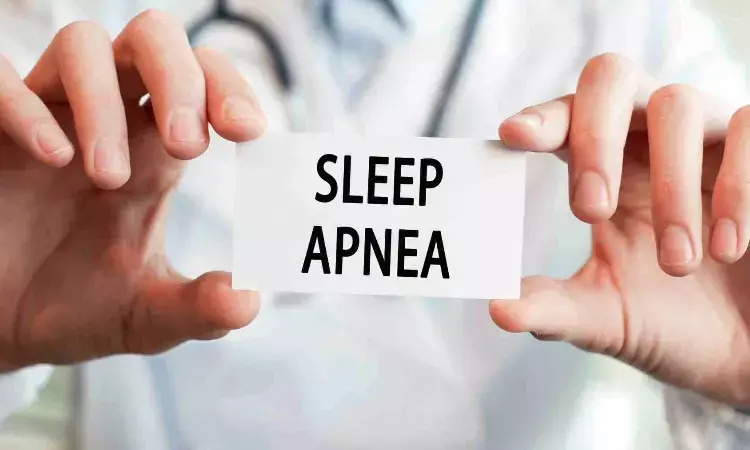- Home
- Medical news & Guidelines
- Anesthesiology
- Cardiology and CTVS
- Critical Care
- Dentistry
- Dermatology
- Diabetes and Endocrinology
- ENT
- Gastroenterology
- Medicine
- Nephrology
- Neurology
- Obstretics-Gynaecology
- Oncology
- Ophthalmology
- Orthopaedics
- Pediatrics-Neonatology
- Psychiatry
- Pulmonology
- Radiology
- Surgery
- Urology
- Laboratory Medicine
- Diet
- Nursing
- Paramedical
- Physiotherapy
- Health news
- Fact Check
- Bone Health Fact Check
- Brain Health Fact Check
- Cancer Related Fact Check
- Child Care Fact Check
- Dental and oral health fact check
- Diabetes and metabolic health fact check
- Diet and Nutrition Fact Check
- Eye and ENT Care Fact Check
- Fitness fact check
- Gut health fact check
- Heart health fact check
- Kidney health fact check
- Medical education fact check
- Men's health fact check
- Respiratory fact check
- Skin and hair care fact check
- Vaccine and Immunization fact check
- Women's health fact check
- AYUSH
- State News
- Andaman and Nicobar Islands
- Andhra Pradesh
- Arunachal Pradesh
- Assam
- Bihar
- Chandigarh
- Chattisgarh
- Dadra and Nagar Haveli
- Daman and Diu
- Delhi
- Goa
- Gujarat
- Haryana
- Himachal Pradesh
- Jammu & Kashmir
- Jharkhand
- Karnataka
- Kerala
- Ladakh
- Lakshadweep
- Madhya Pradesh
- Maharashtra
- Manipur
- Meghalaya
- Mizoram
- Nagaland
- Odisha
- Puducherry
- Punjab
- Rajasthan
- Sikkim
- Tamil Nadu
- Telangana
- Tripura
- Uttar Pradesh
- Uttrakhand
- West Bengal
- Medical Education
- Industry
Hypoxemia due to sleep apnea associated with risk of lung cancer reoccurrence: Study

A new study to be presented at the SLEEP 2024 annual meeting is the first to find that episodic hypoxemia and hypoxic burden related to obstructive sleep apnea are associated with the risk of accelerated lung cancer reoccurrence.
Results show that a 4% oxygen desaturation index of more than 15 and time spent in desaturation events were risk factors for cancer reappearance in less than two years. Measures of hypoxic burden such as time spent below 89% oxygen saturation, average oxygen saturation value below 89%, and single nadir oxygen levels, showed a similar association. After adjustment for potential confounders, average oxygen saturation below 89% and single minimum oxygen level remained strongly correlated with accelerated cancer reoccurrence.
“We were suspecting that we would find a positive association between measures of intermittent hypoxemia and lung cancer reoccurrence; nonetheless, we never expected to see such a strong signal,” said lead author Dr. Fernando Figueroa Rodriguez, sleep medicine fellow at the Mayo Clinic in the division of pulmonary, critical care, and sleep medicine in Rochester, Minnesota. “This caught us by surprise; but at the same time, this keeps us encouraged and eager to produce more data.”
The study involved a retrospective record review of 403 adult patients from January 2016 to September 2023. They had a median age of 74 years, and 52% were female. The patients had a history of non-small cell lung cancer and received an overnight oximetry study within three years prior to undergoing curative malignancy treatment. During the study period, 68 patients (22%) had lung cancer reoccurrence, with a median time period of 19 months.
Figueroa Rodriguez noted that a new study with an increased sample size has been initiated for the performance of additional analyses to better understand this relationship. Similarly, researchers at the Mayo Clinic are evaluating the impact of CPAP therapy for sleep apnea on cancer outcomes.
“At this time we have not finalized these next steps; nevertheless, we have a fantastic team working on the necessary requirements to have this data ready soon,” said Figueroa Rodriguez.
Reference:
Fernando Figueroa Rodriguez, Kaiser Lim, Tobias Peikert, Patricio Escalante, Timothy Morgenthaler, 0468 CRASH: Cancer Reoccurrence Is Accelerated by Episodic Hypoxemia, Sleep, Volume 47, Issue Supplement_1, May 2024, Pages A201–A202, https://doi.org/10.1093/sleep/zsae067.0468.
Dr Kamal Kant Kohli-MBBS, DTCD- a chest specialist with more than 30 years of practice and a flair for writing clinical articles, Dr Kamal Kant Kohli joined Medical Dialogues as a Chief Editor of Medical News. Besides writing articles, as an editor, he proofreads and verifies all the medical content published on Medical Dialogues including those coming from journals, studies,medical conferences,guidelines etc. Email: drkohli@medicaldialogues.in. Contact no. 011-43720751


